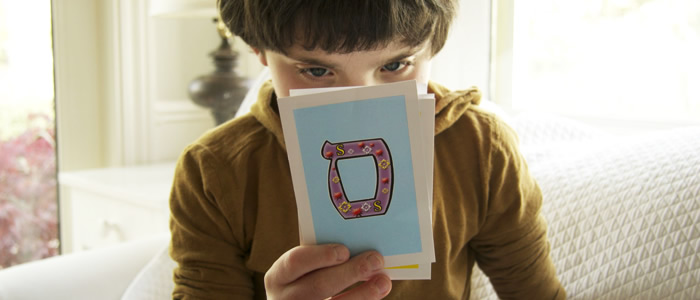It is inevitable. When meeting with prospective parents about Hillel Day School, the classic question arises: “How can you teach everything in half a day?” And therein lies the rub. The true beauty of a bilingual education is that learning takes place all day long. By having lessons taught in two languages, students are learning to apply rules and concepts to different settings, thereby actually enabling the brain to develop differently and into a more flexible mind.
Studies show two languages are better than one
There are countless studies and research supporting the benefits of a bilingual education, not to mention the globalization of the world our children will inherit. Learning a second language at an early age leads to higher scores on standardized tests in reading, language arts and math; improved listening and memory skills; improved problem solving skills; greater cognitive development in areas of mental flexibility, creativity, divergent thinking and higher-order thinking skills; greater sensitivity to other languages and a better ear for listening; better understanding of the structure of English; and greater understanding of other cultures and peoples.
The skills our students learn to analyze ancient text in Hebrew make it that much easier to analyze classic American novels. In eighth grade, when Hillel students discuss Harper Lee’s classic book To Kill a Mockingbird, the divergent thinking skills acquired through bilingual learning apply seamlessly to analyzing and decoding the novel.
Mental exercise: it works, it really works
Perhaps the simplest answer to whether bilingual education works is explained in a recent article found in March 17, 2012’s New York Times by Yudihijit Bhattacharjee, “Why Bilinguals are Smarter.” “Being bilingual, it turns out, makes you smarter. It can have a profound effect on your brain, improving cognitive skills not related to language and even shielding against dementia in old age.” Bhattacharjee cites countless studies confirming that what was once considered a hindrance to academic development is now lauded as strengthening the cognitive brain muscles. “The collective evidence from a number of such studies suggests that the bilingual experience improves the brain’s so-called executive function – a command system that directs the attention processes that we use for planning, solving problems and performing various other mentally demanding tasks. These processes include ignoring distractions to stay focused, switching attention willfully from one thing to another and holding information in mind.”
To answer the question posed by countless inquiries – our children learn everything and more. It is not only Hillel’s small class sizes, award-winning faculty, differentiated instruction, organized schedules and problem-solving curriculum that enable our students to learn what their counterparts are learning in other public and private schools. It is the bilingual education. We know our bilingual education works. Our graduates succeed in high school and college, are disproportionately represented in ranks of leadership and take multiple honors and AP classes – and they have a very strong Jewish identity. As a parent of sixth, fourth, and first grade lateral entry students said to me, “It is amazing how much more my children are learning at Hillel in ‘half a day.’ It makes me question what they were doing for the full day in their other school?!”
What do you think?
How has your bilingual education worked for you? Join the conversation at @myJDetroit.




